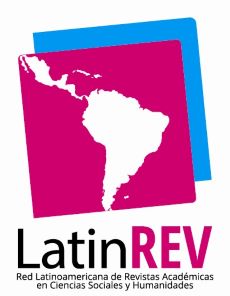Significant aspects of international arbitration
DOI:
https://doi.org/10.29105/msc4.7-97Keywords:
Arbitration, Emergency arbitrator, Artificial Intelligence, Arbitration agreementAbstract
Among the alternative means of dispute resolution, international arbitration has caught our attention and that is why we have proceeded to identify those relevant or current aspects that could provide the reader with a general overview of what is happening around this useful mechanism. Firstly, this research made it possible to discover the variability of provisions that would be applicable particularly in the development of the arbitration procedure and the execution of the award since in each matter the following could occur: (i) rules established in international treaties and commercial agreements; (ii) the Arbitration Rules of the International Chamber of Commerce, and (iii) the domestic legislation as well as the jurisprudence of each country where the parties in controversy originate, have their headquarters or the arbitration award must be executed. Furthermore, it focuses on discovering the existence of authentic autonomy of the arbitration clause, of the arbitration instance, and of the arbitration ruling, or if it is subject to the updating of certain variables.
Downloads
References
ANCEL, B. (15 de Enero de 2010). Biblooteca Virtual del Instituto de Investigaciones Jurídicas de la UNAM. En R. MÉNDEZ SILVA, Contratación y Arbitraje Internacionales. (Vol. 1, págs. 187-204). México, México: Instituto de Investigaciones Jurídicas de la UNAM. Recuperado el 24 de febrero de 2024, de http://ru.juridicas.unam.mx:80/xmlui/handle/123456789/30686
CCI, C. d. (1 de Janvier de 2021). Chambre de Commerce Internationale CCI. Recuperado el 20 de février de 2024, de https://iccwbo.org/ https://iccwbo.org/news-publications/arbitration-adr-rules-and-tools/arbitration- rules-and-mediation-rules/#single-hero-document
CIETAJ, C. I. (1 de January de 2024). Arbitration Rules. Recuperado el 18 de 02 de 2024, de China International Economic and Trade Arbitration Commission (CIATAJ): http://cietaj.org
Dalico Contractors, Pourvoi 91-16.828 (Cour de Cassation, Chambre civile 1, République Francaise. 20 de décembre de 1993).
Hilmarton Ltd, N° de pourvoi : 92-15.137 (Cour de Cassation, Chambre civile 1, de la République Francaise. 23 de mars de 1994).
IBA, I. B. (2021). Rules on the Taking of Evidence in International Arbitration. (1 ed.).
London, United Kingdom: International Bar Association.
MILANOVIC, M. (18 de février de 2024). Arbitrage International. Informations sur l'arbitrage international par Aceris Law LLC. Recuperado el 24 de février de 2024, de https://www.international-arbitration-attorney.com/fr/fixed-deadlines-in- arbitration-agreements-pros-and-cons/
Société Buisman´s, N° de pourvoi : 70-14.163 (Cour de Cassation, Chambre civile 1, République Francaise. 04 de juillet de 1972).
Société PT Putrabali Adyamulia v. Société Rena Holding et Société Moguntia Est Epices, Pourvoi No. 05-18.053 (Chambre Civile 1 de la Cour de Cassation de la République Francaise. 29 de juin de 2007).
SVAMC, S. V. (31 de August de 2023). Silicon Valley Arbitration and Mediation Center SVAMC. Recuperado el 19 de february de 2024, de https://svamc.org/svamc- draft-guidelines-released-for-public-consultation/ https://arbi-city.typeform.com/ai- guidelines
Downloads
Published
How to Cite
Issue
Section
License
Copyright (c) 2024 Gelacio Juan Ramón Gutiérrez Ocegueda, José Zócimo Orozco Orozco

This work is licensed under a Creative Commons Attribution-NonCommercial 4.0 International License.
Los autores/as que publiquen en esta revista aceptan las siguientes condiciones:
a. Los autores/as conservarán sus derechos de autor y garantizarán a la revista el derecho de primera publicación de su obra, el cual estará simultáneamente sujeto a la Licencia Creative Commons Atribución-NoComercial 4.0 Internacional. que permite a terceros compartir la obra siempre que se indique su autor y su primera publicación esta revista.
b. Los autores/as pueden realizar otros acuerdos contractuales independientes y adicionales para la distribución no exclusiva de la versión del artículo publicado en esta revista (p. ej., incluirlo en un repositorio institucional o publicarlo en un libro) siempre que indiquen claramente que el trabajo se publicó por primera vez en MSC Métodos de Solución de Conflictos.
c. Se permite y recomienda a los autores/as a publicar su trabajo en Internet (por ejemplo en páginas institucionales o personales) posterior al proceso de revisión y publicación, ya que puede conducir a intercambios productivos y a una mayor y más rápida difusión del trabajo publicado (Véase El efecto del acceso abierto).







 MSC Métodos de Solución de Conflictos Vol. 5 Núm. 9, Julio-Diciembre 2025, es una publicación semestral editada por la Universidad Autónoma de Nuevo León, a través de la Facultad de Derecho y Criminología. Dirección de la publicación: Av. Universidad s/n Cd. Universitaria C.P. 66455, San Nicolás de los Garza, Nuevo León, México. revistamsc.uanl.mx, revistamsc@uanl.mx. Editor responsable: Dr. Francisco Javier Gorjón Gómez. Reserva de Derechos al Uso Exclusivo núm. 04-2023-110310161600-102 ISSN 2992-8370, ambos otorgados por el Instituto Nacional del Derecho de Autor. Responsable de la última actualización: Dr. Paris Alejandro Cabello Tijerina, Facultad de Derecho y Criminología Av. Universidad s/n Cd. Universitaria C.P. 66451, San Nicolás de los Garza, Nuevo León, México. Fecha de la última modificación: 28 de julio de 2025.
MSC Métodos de Solución de Conflictos Vol. 5 Núm. 9, Julio-Diciembre 2025, es una publicación semestral editada por la Universidad Autónoma de Nuevo León, a través de la Facultad de Derecho y Criminología. Dirección de la publicación: Av. Universidad s/n Cd. Universitaria C.P. 66455, San Nicolás de los Garza, Nuevo León, México. revistamsc.uanl.mx, revistamsc@uanl.mx. Editor responsable: Dr. Francisco Javier Gorjón Gómez. Reserva de Derechos al Uso Exclusivo núm. 04-2023-110310161600-102 ISSN 2992-8370, ambos otorgados por el Instituto Nacional del Derecho de Autor. Responsable de la última actualización: Dr. Paris Alejandro Cabello Tijerina, Facultad de Derecho y Criminología Av. Universidad s/n Cd. Universitaria C.P. 66451, San Nicolás de los Garza, Nuevo León, México. Fecha de la última modificación: 28 de julio de 2025.